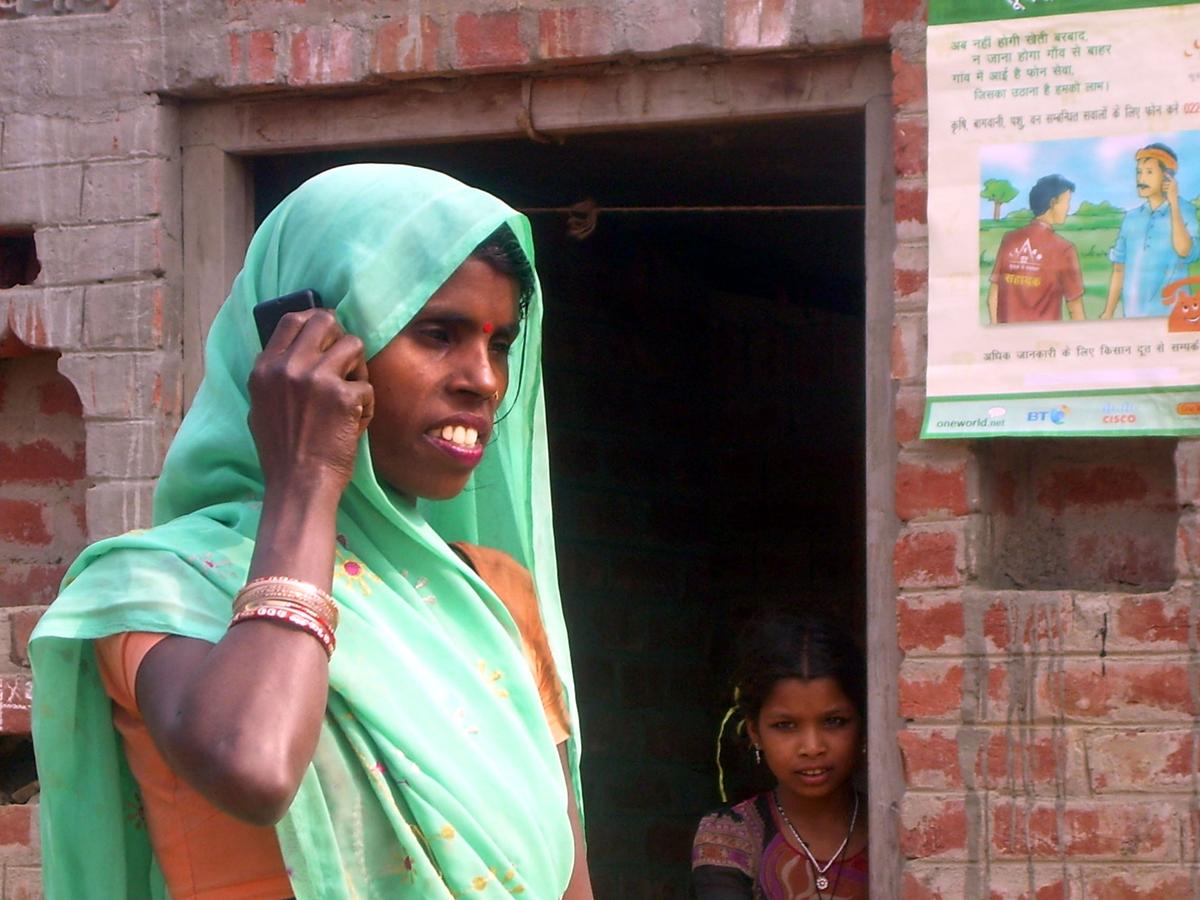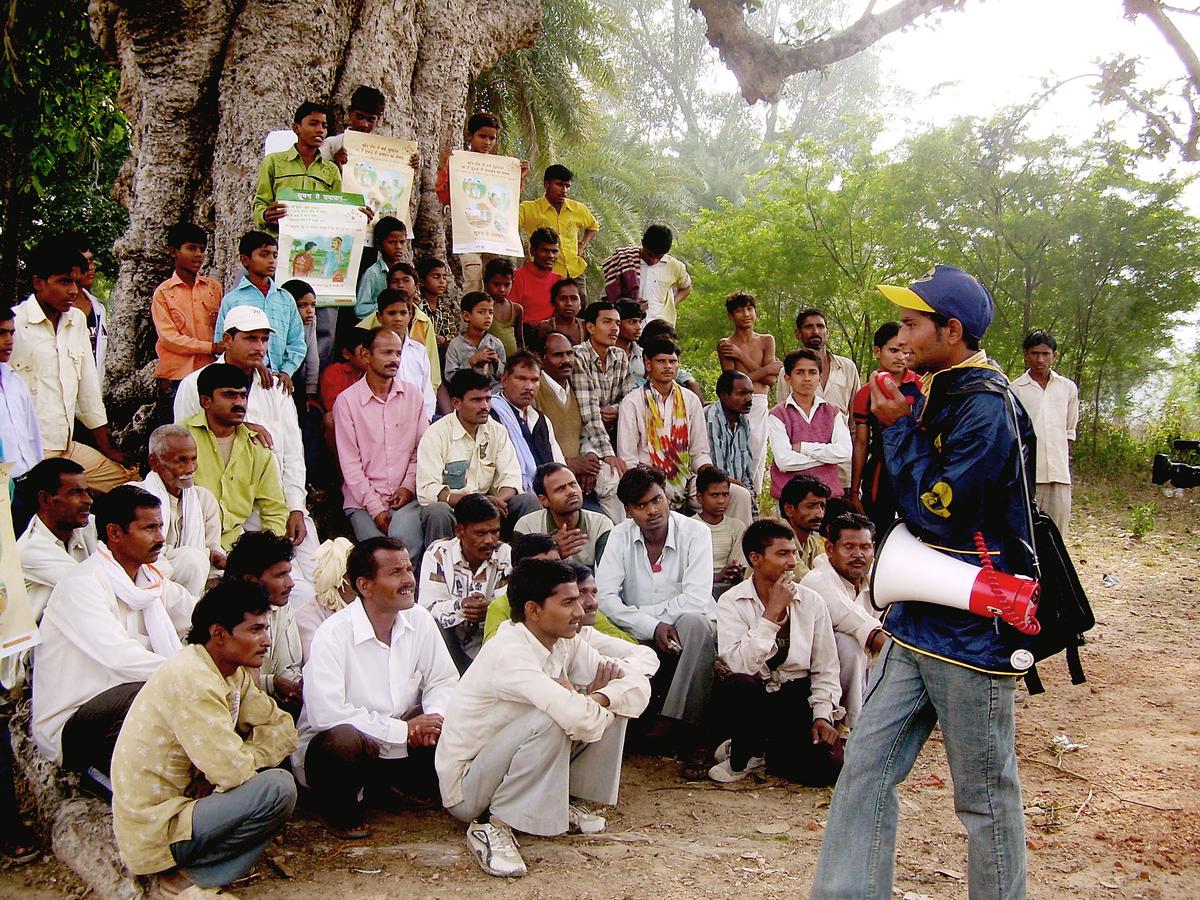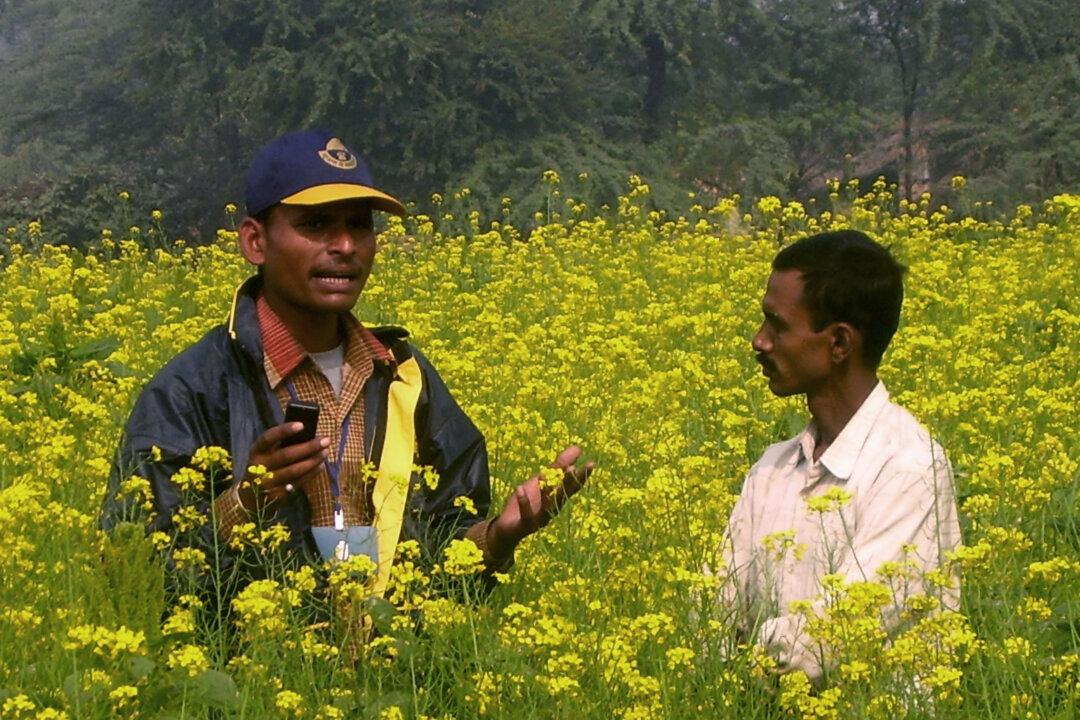NEW DELHI—In developing India, farmers are hungry for information.
“Markets are demanding things and farmers don’t understand how they [can] cope with those demands. What we need in such a situation, what the farmer needs in such a situation is information,” said Bijoy Patro, the Head of Programmes and Editorial at One World Foundation India (OWFI), an Information and Communication Technology NGO.
The explosion of cell phones in India is starting to change that, even among the poorest sectors of society. There are over 900 million cell phone subscriptions in India, the second highest in the world after China.
To fulfill the growing information needs of farmers, a group of agricultural experts at OWFI are using a simple cell phone app called “LifeLines-Agriculture” to answer questions.
“The farmer records his question and sends it to our toll free number. We then retrieve it, our team of knowledge workers (agricultural experts) research and discuss answers, and within 24 hours, send a voice based response,” said Dr. Lata Sharma, Assistant Manager at LifeLines-Agriculture.
In the past eight years OWFI has answered 490,000 questions.

A woman farmer through the mobile phone application called LifeLines Agri, sends a question on a toll-free-number in a village in the Indian state of Uttrakhand. Farmers’ questions reach the server of the NGO, One World Foundation and a group of knowledge workers discuss answers to the farmer’s query before getting back to him with the answer within 24 hours. (Courtesy One World Foundation)
LifeLines Reaching Disaster-Hit Farmers
One year ago, floods in the north Indian state of Uttarakhand ravaged farmers crops and livestock. A World Bank report estimated the agricultural loss to be at $4.25 million and horticulture to be at $21 million. The hardest hit regions lost 62 per cent of their livestock, according to the report.
LifeLines-Agriculture is now working with these farmers to rebuild their lives.
“We are daily getting 30 questions. Today [by 11 am] we have got ten,” said Anusha Pant, an agriculture expert with LifeLines. “Our target is to answer 300 calls a day.
This summer LifeLine agriculture experts said they have received many questions from farmers about tomato crops.
“The tomato fruit borer is here, which is a kind of insect, a very common insect of tomato. Farmers asked us what kind of [seed] variety we can use which is resistant to this insect,” said Vijeta Joshi, a LifeLines agriculture expert.
LifeLines is also helping with longer-term crisis created by India’s changing demographics and landscape.
“There is climate change and farmers cannot follow the traditional Indian calendar. The current generation of farmers have deviated from traditional family practices. The men are migrating from villages to cities leaving land behind with the wife who knows little about farming,” Patro said. “We need such information gateways.”
LifeLines will soon be launched as a smartphone app so farmers can send photos and videos of their crops along with their questions.

A NGO worker meets with a group of farmers teaching them how to use, LifeLine Agri, a mobile phone based application used to connect farmers to a group of knowledge workers in the Indian state of Uttar Pradesh. India has more than 800 million mobile phone subscriptions and the country is set to reap the benefits of information technology in farming. (Courtesy One World Foundation)





